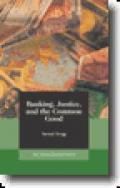


Last week, Verizon Communications Inc. shareholders rejected a wireless network neutrality proxy resolution from two prominent Interfaith Center for Corporate Responsibility members, Nathan Cummings Foundation and Trillium Asset Management Corporation.
As this writer noted in a March 28, 2013, blog post concerning a similar proxy resolution submitted to AT&T Inc., advocacy of network neutrality is far removed from the ICCR’s goals of furthering social justice because it kills jobs, deters technical innovations and drives up consumer bills. The NCF and TAMC resolutions singling out Verizon, however, are even more ludicrous as pany still awaits its day in court to appeal net neutrality rules adopted by the Federal Communications Commission.
Got that? The shareholders wanted Verizon to adopt the very same rules for its wireless service that it’s battling against for its wired networks in the U.S. Court of Appeals for the District of Columbia.
The NCF/TAMC resolution reads, in part:
Verizon’s stated policies for customers who access the Internet via wireless devices are markedly different from those for customers who access the Internet via wired networks.
For example, on its web site the Company offers customers who gain Internet access via its wired network a mitment” which includes: “We will not prevent you or other users of our service from sending and receiving the lawful content of your choice; running lawful applications and using lawful services of your choice…” and “We will disclose the types of practices that we use to manage our network…”
Wireless customers, however, are given no such assurances. The Company tells wireless customers: “We will continue to disclose accurate and relevant information in plain language about the characteristics and capabilities of our service offerings so you and other users of our service can make informed choices.”
As investors, we are deeply concerned about this disparity in principles, policies and practices. In light of potential reputational, regulatory, and legislative risk related to Verizon’s network management practices and the issue of network neutrality, this disparity is troubling.
There may also be reputational mercial risk in not providing customers with evidence of open Internet policies. On its public policy blog, a Verizon executive describes a high level petition in the wireless market and says consumers “can vote with their feet if they want to” by choosing another wireless provider.
Not surprisingly, Verizon’s Board strenuously objected to the ICCR proposal. The Board’s statement reads, in part:
The Board of Directors strongly believes … this proposal will harm Verizon’s ability to provide robust and secure wireless broadband service to its customers. The delivery of high-quality and safe wireless Internet access services is a plex, technical undertaking. The proponents appear to have no concept of the negative technical and operational ramifications of requiring purely ‘neutral’ routing of Internet traffic. This proposal would substantially interfere with the technical operation of Verizon’s wireless broadband network and have a wide-ranging and significant impact on Verizon’s business and operations. Among other things, the proposal would prevent Verizon from engaging in reasonable network management practices designed to address potential congestion, security and other wireless network problems and make the network more efficient and more widely available to all customers. The proposal would also prevent Verizon from giving priority to police, fire and munications over its wireless broadband network in the event of natural disasters or terrorist attacks.
Shareholders rejected the proposal by a 76-percent margin, significantly smaller than the 92-percent margin that defeated a similar but more strongly worded resolution in 2012.
Mike Wendy, director of MediaFreedom.org, with whom I’ve had the great pleasure of interviewing on numerous occasions, called out those shareholder groups advocating for wireless net neutrality in a May 6, 2013, blog post, saying they “wanted more tools to further hamstring network providers into ing (one day, they dream) government controlled, owned and operated public utilities.”
Wendy quotes several of the strongest voices for net neutrality who assert that “capitalism is immoral.” To these individuals, he writes, “Verizon’s networks are assets that are just too important to society to be controlled by private actors.” In anything, Wendy’s description soft-peddles the anti-capitalist, socialist rhetoric.
If readers are left wondering at this point which side of the net neutrality debate – Verizon or ICCR members – is on the side of the angels, I’ll leave you with a whopper of a clue. In his 2012 book, Defending the Free Market: The Moral Case for a Free Economy, Rev. Robert Sirico writes:
[C]apitalism is the ponent of the natural order of liberty. Capitalism offers wide ownership of property, fair and equal rights for all, strict adherence to the rules of ownership, opportunities for charity, and the wise use of resources. Everywhere it has really been tried, it has meant creativity, growth, abundance and, most of all, the economic application of the principle that every human being has dignity and should have that dignity respected.









